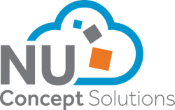NU Concept Blogs

How to Thrive in the ERP Industry Amid Automation Trends: Five strategies for success
Five strategies to help you thrive in the ERP Industry amid automation trends.
The Enterprise Resource Planning (ERP) industry is transforming due to the rapid adoption of automation technologies. These technologies reshape the job landscape, creating new opportunities and transforming existing roles. With a focus on the changing skill sets demanded by ERP implementation and automation, this blog highlights the importance of continuous learning and adaptability.
The changing nature of ERP systems
AI technology has driven advancements in ERP systems for a while. Today, machine learning, natural language processing (NLP), and robotic process automation enable ERP systems to automate complex tasks.
Emerging technologies are also driving sharper decision-making. Advanced systems use AI technologies to
- drive more accurate forecasts
- optimise supply chains
- deliver personalised customer experiences (CX).
Predictive modelling (a form of advanced analysis) uses historical data, statistical algorithms, and ML techniques to identify the likelihood of future outcomes. Companies are using this for tasks ranging from demand forecasting to financial planning. We’re also seeing rapid innovations driven by image recognition and anomaly analysis.
What do modern systems mean for ERP professionals?
This is an exciting time to work in ERP, but it also means that professionals must keep abreast of these developments. ERP industry professionals need a strategic approach to thrive amid these changes.
Here are five key strategies for success:
- Be adaptable and embrace continuous learning
Implementing ERP systems and automation technologies demands a new set of skills. Professionals may need to learn new software, understand data analytics, and develop problem-solving skills. Stay updated with the latest trends and technologies to position yourself as a valuable asset. - Develop soft skills
Technical skills are crucial, and with new automation trends, it’s easy to think that tech skills are all you need. Yet, soft skills such as communication, teamwork, and leadership are essential. Automation may handle repetitive tasks, but human interaction and collaboration are vital. Focus on enhancing your soft skills. This will enable you to work effectively with diverse teams and manage complex ERP projects. - Embrace automation
Rather than fearing job displacement, ERP professionals can use automation to enhance efficiency and productivity. Use automation to streamline processes, reduce errors, and focus on more strategic tasks. - Be open to new opportunities
Automation is creating new roles and opportunities within the ERP industry. Be proactive in exploring these opportunities. Take time to expand your skill sets to future-proof your career. Roles such as data analysts, automation specialists, and ERP consultants are in high demand. By diversifying their expertise, ERP professionals can open doors to new career paths and stay ahead of the competition. - Adapt to new realities
While automation may lead to job displacement in some areas, it also creates new roles requiring human expertise and specialist IT knowledge. ERP professionals should focus on reskilling and upskilling to transition into these new roles. By staying adaptable and embracing change, you can mitigate the impact of job displacement and continue to thrive in this dynamic sector.
Automation’s impact on wider workforces
Agile and adaptable teams are needed to run and maintain ERP systems. The common misconception about automation is that it will cost more jobs than it creates. Contrary to the common misconception about automation leading to job losses, automation, working alongside effective ERP solutions, gives departments the freedom to become more specialised and efficient. Automation combined with ERP removes mundane and repetitive tasks. This means workers can spend more time on logical tasks. It can enable companies to focus on customer experience (CX) and customer service. Employees can have time to think critically, use their creative and problem-solving skills to feel appreciated in their roles, and enjoy their careers.
Transition takes time
There is a need for more specialised expertise in the face of automation. The safest route, to ensuring humans have a future in the workforce, is to scale skillsets alongside the technology that enables them. This approach allows you to learn about technical concepts, empowering you to stay relevant in the progressive tech sector.
You’re still in demand
Companies undergoing digital transformation now ensure their teams have the skills to manage the new workflows that AI-enabled ERP systems create. At present, highly-skilled, educated, and experienced tech professionals are increasingly being sought after by companies that have adopted automation to a high degree. Software engineering, product management, and application development professionals are among the most sought-after roles.
Embracing change: navigating the future of the ERP industry
ERP is being reshaped by automation trends, creating both challenges and opportunities. By embracing continuous learning, developing soft skills, using automation, and exploring new opportunities, ERP professionals can successfully navigate this transformation and future-proof their careers.
If you’re looking for your next ERP role, why not register your details with us today or email
